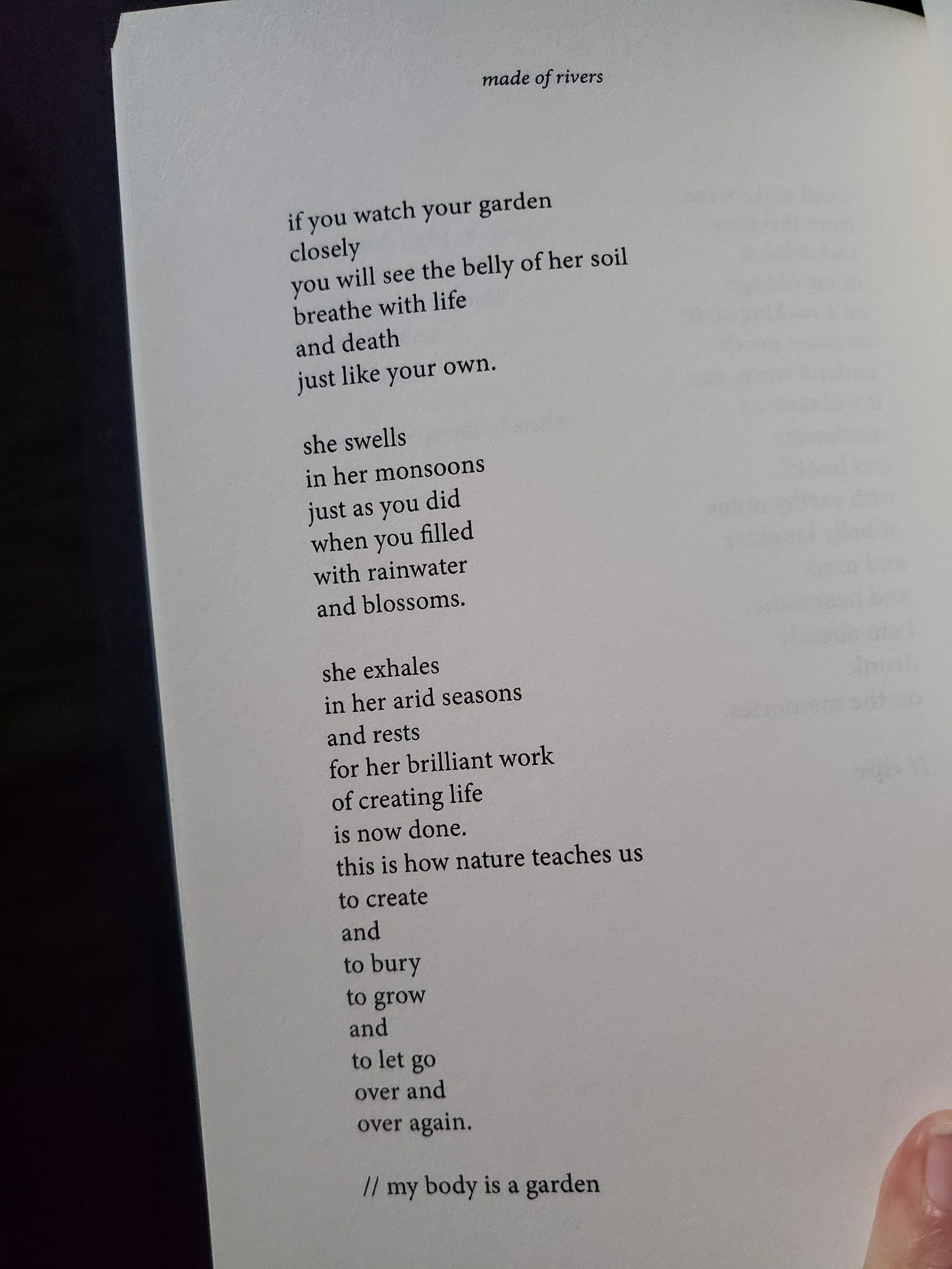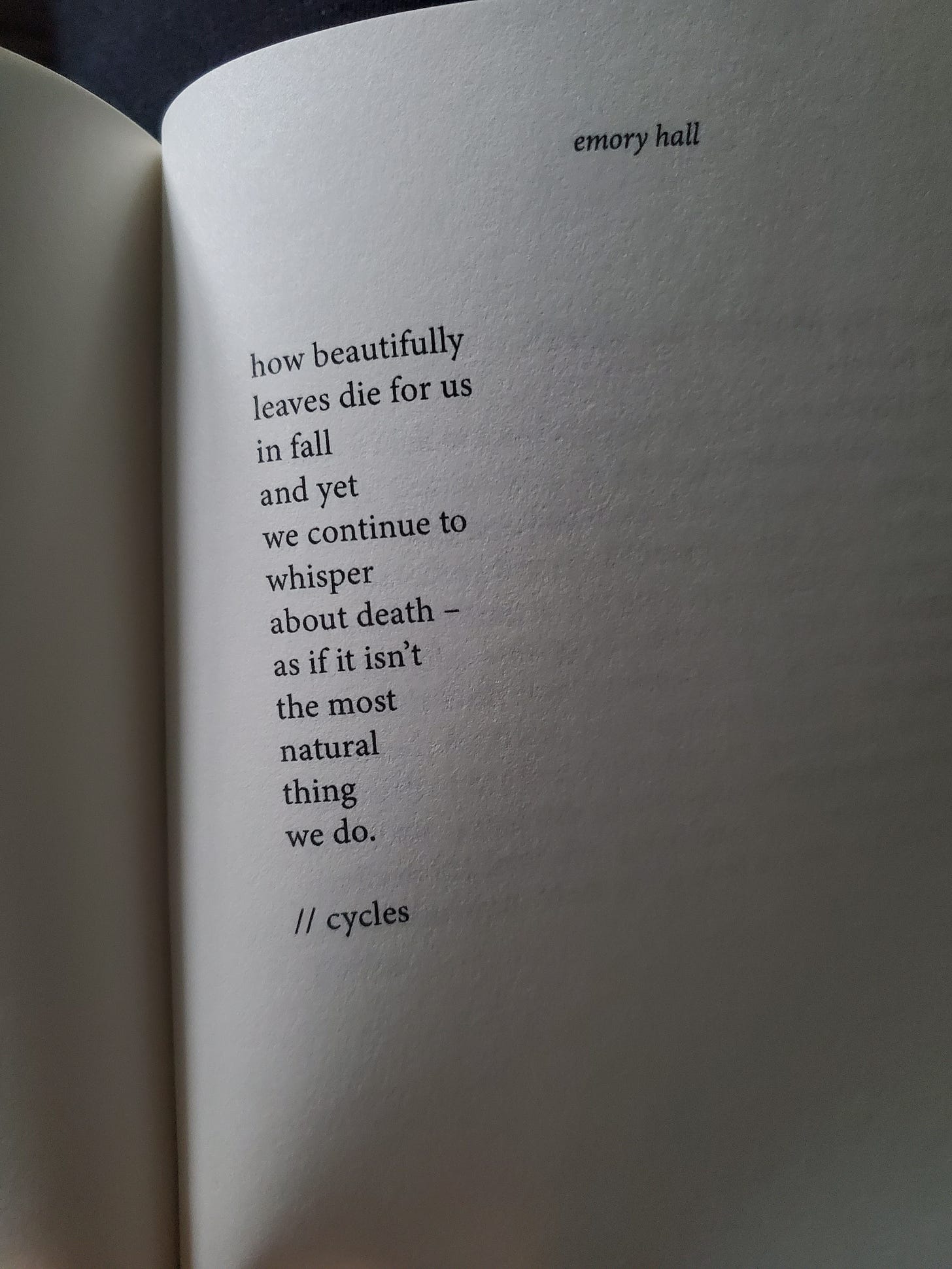This post discusses education to become a nurse, the common training modalities that are used, and a question about going back to old ways. The audio narration is above (a different version of similar words). I hope you enjoy!
Hello friend,
I started a Nutrition class this semester and am reminded of my first time through during my undergraduate studies. It’s got me thinking about the ways we adults learn (the principles of adult learning), the format of most nursing degree programs, and some opportunities to better support the learner in some industries (lookin’ at you, Healthcare). When we look at history and what brought us to now, patterns begin to emerge. Old ways come back into style: think about baggy jeans and midriff tops from the 90’s. If 20-30 years is our turnaround time, it might be worth considering the “old school” philosophy of “on-the-job training” or some other version of trade/diploma schools. Let’s dive in!
Nursing By Degrees
Since the formalization of nursing as a profession (thanks to Florence Nightingale and her predecessors) the formative “bar” has been raised over time. As a profession, we must have standards — to support safe practice and care, both for nurses and the patients we serve. In 2010, the Institute of Medicine suggested that standard nursing practice would/should require Masters Degrees (Masters of Science in Nursing — MSN) instead of Associates (ADN — from community college) or Bachelors (BSN — from university). The terminal (highest) degree for nursing is a Doctorate of Nursing Practice (DNP) or PhD (Doctor of Philosophy) which may be obtained after a Bachelor’s degree.
A Nurse Practitioner is an Advanced Practice Registered Nurse (NP/APRN) who completes a Masters Degree program and passes a board exam to become an NP. An NP is a provider. A provider can write orders for medications (prescriptions) and services (home health). A provider can give medical advice (within their scope of practice). NP curricula were previously were formed with the understanding that the nurse came with some foundational nursing experience. The stuff we can’t learn in school. Universities used to require a minimum of 2-3 years of nursing experience before entry into an NP program. Those practices have shifted with time, demand, etc. and now there are new nurses applying to grad schools with 6 months of work experience. Not ideal, but real. When I was still working bedside fulltime, it seemed like almost everyone was going back to school for something.
Though practices shift and requirements change, the minimum requirement to become “a nurse” remains: ADN or BSN (which varies by location and hiring practices of different companies). There are several paths into nursing, and many more branches to grow into with time, experience, and schooling. University websites and blogs like this one provide a quick look at the many training/degree opportunities beyond the BSN (spoiler alert: there are a ton).
Today I want to focus on brand new, new graduate (new grad) nurses. Fresh out of school, welcome to Healthcare!
Nursing School — Expectation vs. Reality
Many folks who decide to become nurses do so without any inkling as to what their future role might entail. I am one of them. Before becoming a nurse, I had never worked in a Healthcare setting. I had been a server (waitress) in a restaurant, a babysitter, a sandwich artist, and (very briefly) a telemarketer.
I had the privilege of going to a 4-year university right out of high school. I spent about 1.5-2 years completing prerequisite and general education classes; a mix of what was required for entry to the School of Nursing, and electives of my choosing (like “English”, “Education as a Change Agent”, and “Karate”). The nursing classes came later, deep into the time and financial commitment of a university education. Most of my undergrad coursework was classroom learning (except for karate, that was in a gym). None of the pre-reqs introduced me to taking care of humans (unless you count one visit to a cadaver lab in Anatomy class).
Then we transition to “Nursing School” — a mix of lectures, labs (simulated patient environments in a classroom setting), and clinicals (on-site training at a Healthcare facility or the community). Nursing schools partner with Healthcare organizations to provide Clinical experiences. Clinicals compliment what nursing students are learning in class with real-life experiences around real-life nurses and real-life patients in a real-life Healthcare setting. We didn’t get to do Clinicals until… the last 3-4 semesters of college/Nursing School.
Historically, Clinicals have taken place in Hospitals. Some take place in the community or a Home Health agency. Groups of nursing students descend on a unit at 6AM, look up their patients, join the morning huddle, and follow the nurses around trying to listen to the change-of-shift report. Students, not yet knowing how to prioritize this inundation of information, furiously scribble notes and try to glean insight into what their day will look like — and what their future nursing career might be like.
Clinicals are our first look into a life in Healthcare. Clinicals are also a mixed bag of experiences.
If the students have a highly-engaged preceptor (an experienced nurse who guides the novice) who’s not too busy, or a clinical instructor (an adjunct professor from the school) who’s especially attentive, the clinical experience can be very enriching.
If preceptors/clinical instructors are not highly engaged with the students (understaffed, overworked, recovering from burnout, post-pandemic getting by, etc.), the students still get through. They do learn. It’s fine. They learn about giving baths or transferring someone from a bed to a chair, and somehow the day ends and they leave. Probably not as meaningful this way, but it’s still a peek into Nursing.
The students usually attend Clinicals once a week for several weeks, then rotate to a different site or unit for the next one.
It can feel like trying to take a sip from a gushing fire hydrant.
Some of my nursing school classmates were already working in Healthcare as CNAs or EMTs. These students who seemed to speak the language of Healthcare. They had a deeper, richer understanding of the jargon, the flow of patients and information, and their place in it all. They seemed to know what they were getting themselves into. In hindsight, they could see where they/we were heading.
I did not. (During nursing school, one of our classes prepares us to sit for the Certified Nursing Assistant (CNA) exam. I did so, got certified, and applied for jobs, but never got called about a single one.) I finished nursing school with zero Healthcare experience (aside from Clinicals).
On The Job Training
I joke that my experience working in the service industry was preparation for being a nurse, and in many ways it was. I learned the value of customer service, multitasking, prioritizing, delegation, cleanliness, and, most importantly, efficiency. I could handle a table of 6 coming in before a table of 12 had finished their drink order. I knew calling “I’m in the weeds” would alert my manager and coworkers that I was overwhelmed, and they’d provide backup. I had side-work tasks to complete at the end of each shift, and I claimed my tips, then I clocked out. Then I left and went on with my life and rarely gave a second thought to the people I served that shift.
Being a server prepared me in some ways, but nothing prepared me for what Nursing is really like. I learned most of what I know on-the-job working in a hospital. For many, what we signed up for as Healthcare Workers tends not to be the job we get when we arrive. We find a discrepancy between Expectation & Reality.
Expectations: I’m going to take care of people. I’m going to use the skills I learned in school. I’m going to document everything I do (if it’s not documented, it didn’t happen), and I’m going to help patients get better.
Reality hits us, hit me, in waves.
Reality of a new grad nurse: too busy to spend the time I wanted with my patients and their families. Too many tasks, documentation, interruptions to the flow… and not enough sitting, sharing, listening, healing.
This is an over-simplification for sure. As I gained experience and learned what nursing actually was, I became better able to manage my time and volume of patients each shift (at least, more of the time). I learned this all with experience. It came with time. I was able to grow as a preceptor and charge nurse. I didn’t decide on an advanced degree till about 6-7 years into my career.
Clinicals, Classrooms, & Standards
Though Clinicals were part of my undergrad schooling in the final 3-4 semesters, a majority of my time in college was spent in lecture-style classes with 30-200+ other students. Standardized. Hearing the same words and watching the same slides on a screen. Then, reading from the same book. Taking the same test. Getting various grades. And progressing, or not.
I learned a lot throughout my undergrad coursework. I took classes in pharmacology, biology, microbiology/bacteriology, anatomy, physiology, mother/baby, mental health, fundamentals/foundations of nursing. I learned about life from the cellular (micro) level, to the population (macro) level. Every bit of every cell that makes up every part of our bodies. How every part of our bodies work together. How medicine and time affect our bodies. How we’re born, develop, and change. Stardust to stardust. (I didn’t learn much about aging, disabling, or dying). I learned about Nutrition though!
I had learned a lot, passed tests, and understood the body, its functions, needs… I took my board exam (the NCLEX) to become a Registered Nurse. Passed. Applied for jobs. And then (thanks to my mom), I got a job. My first day as a nurse was my first job in Healthcare.
I didn’t know it then, and hindsight’s lens is a bit smudged, but there was so much I didn’t know. I had learned a lot about human beings: the body and its functions, medicines and their impact on bodily functions, our nutritional needs, etc.
But I didn’t learn about humans being. Interacting. Addressing inconvenient problems. Answering uncomfortable questions. Dealing with long-term, chronic illnesses, their consequences, and the people carrying them.
Some days it feels like I was taught a lot yet knew close to nothing about the human experience in a Healthcare setting. Thankfully, I’ve learned (and continue to do so). I’m grateful to every patient and family I’ve cared for along the way. For their (unknowing) patience and grace when it took a little extra effort to learn and grow. Being a new nurse is hard. Being new at anything is hard.
Not knowing what we don’t know yet is a lesson only time can teach us.
This brings me to what I think could be different. Pie-in-the-sky ideal future, where I can write it however I want. We can call it fiction so our imaginations can run wild. Here it comes:
Rewriting the Future of Nursing — What If…?
These are just my thoughts, and I welcome your input on this. Are you a nurse or Healthcare worker. Have you participated in a diploma program? Your insights matter here, so please leave a comment or let’s discuss in real life.
What if… we revert back to hospital/site-based diploma/trade nursing schools?
In nursing, they were called Diploma Schools. Nursing school through a hospital. Nursing school in a Healthcare setting. Learning on-site where you’ll eventually work, then working while you continue to learn.
I like this model (in theory) for the learner, and the Healthcare facility itself. I believe my aunt and her colleagues completed the diploma program at the hospital where I was born (and later worked).
A Diploma Program.
To some, it sounds outdated… but I think there’s something here.
An opportunity for students to really feel what Healthcare will be like (obviously it’s not the same as having the full responsibility of your own license and caseload of patients, but it’s closer to real life than a clinical in a lab/classroom/simulation setting). I’m sure there’s still benefit to classroom/laboratory learning, but with on-the-job training as the foundation. Future nurses could glean that wisdom of experience from their colleagues on a long-term basis. Have some consistency. See how things flow in one Healthcare setting. It could be standardized.
The preceptors could teach enthusiastically, knowing that their wisdom was being instilled into future generations of care providers. Future colleagues/coworkers. Maybe it won’t be a perfect fit. The new nurse might land in another unit or hospital within that network after they graduate. But the preceptor will spend their time and attention investing in this future nurse, knowing that this future nurse is just as invested in their own success.
Hospitals or agencies would provide the resources (time, humans, etc.) with the expectation that they’d have future, competent workers upstream. You want nurses to be trained by people who want to work here. “Here’s why I feel safe”, “Here’s how you can feel safe working here, too”. You want them to share that wisdom and enthusiasm.
Then together, we elevate nursing practice.
Patients would observe the training process with more transparency — being cared for by the novice and the expert. There’d be more opportunity for feedback on an ongoing basis (do this, don’t do that, next time try this, you might not know that…). A safe place to ask questions, to learn and grow together. Developing rapport. Building and supporting nursing learning on a solid foundation.
Expectation and Reality would cinch closer together.
Right now there’s a chasm. Between what we expect signing up for nursing school, and the reality 4 years later when we care for our first patient. Could Diploma Schools bridge the gap?
Becoming a nurse shouldn’t take a leap of faith.
When reality doesn’t match the expectation, I think burnout is expedited. As nurses, we try to fix it. We look for different jobs, units, or degrees that might be a better fit. Nurses are burning out and leaving the workforce at an accelerated pace.
Can we slow the burnout of new grads? Maybe stave off the the rapid ascension from new grad to advanced degree.
New grads are skipping right through the “newness” and diving directly into their graduate studies. There’s nothing wrong with seeking higher learning, an advanced degree, or a more skilled/specialized role. I encourage anyone who wants to learn, to do so in whatever way works best for them. Elevate our practice, raise the bar. The problem is that most of these advanced degree programs are formatted with the expectation that the student comes prepared with some Healthcare/Nursing experience first. For example, a new grad nurse (with less than 6 months of nursing experience), could get accepted to a Nurse Practitioner program, go to school for a few years, and become an NP. Stamped. Independently practicing provider.
Previously, these programs required 2-3 years of experience to even be accepted. If the programs were restructured for new grads, I might feel differently. But, in the current state of advanced degree programs, and the advanced responsibilities that come with these advanced roles, I feel cautious when I see the newest nurses powering through to the next degree.
There’s a lot of stuff we can’t learn in school. A lot we should, but aren’t. I’m not an NP. I considered it. Decided against it. And continue to watch nurses go down that path.
I think that the level of experience that we’re preparing them with could be better. So, before more new grads flee from the bedside to become NPs (because they’re discovering that nursing isn’t what they expected?) we have an opportunity to revert back to old ways (or at least look at them and see which parts might work now.
Nursing is not alone in the requirements and nuance of school vs. on-the-job training, workforce shortages, experience leaving the bedside… (lookin’ at you, Physical Therapy)… How can we glean the wisdom of experienced workers, enrich the learning experience for students, and improve care of patients, in an affordable and sustainable way that feels good for everyone. I think it could be Diploma programs.
I don’t always know what to think, say, or write.
What do you think?
Let’s play with this idea and see where we land. Hope you’re having a good day. Take good care!
Love,
Jessie






What a thoughtful, amazing mind and writing ability you have. I’m not a nurse and I don’t think I could ever be one, nursing takes a person with so many different talents and many different kinds of intelligence. I think you should turn this into a TED talk. We’re all affected by nurses. I will never forget one kind, caring nurse after my c-section. She was a Godsend.
This all begs the question for me as to why are nurses "burned out" and leaving the profession in droves? Educate nurses better so they can exhaust themselves working around "dumb systems"? If the systems were changed to allow nurses to be nurses what would nurse education look like? Just thinking about all this.